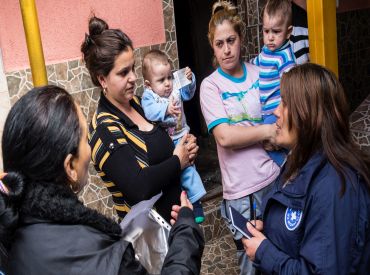Results in the area of reproductive and sexual health and prevention
2016-08-20

On 15 April 2016, a round table on the healthcare issues of Roma living in Nadezhda neighbourhood was organized with the participation of ten religious leaders from the community. This meeting was intended to explain basic matters concerning the reproductive health and contraception, maternal health and prevention. Since the pastors in Nadezhda are leaders in the community and can easily mobilize the participation of its residents, “Medics of the World” invited pastors, Roma women and mothers to join the discussions on these significant topics for the Roma women.
Through the period February – July 2016, the partner NGO “Medics of the World” organized 794 individual meetings with Nadezhda residents who were in need of healthcare and medical attention. Out of those, 385 were first-time visitors and in the organization’s consultancy rooms and received the mediators’ assistance for the gynaecological examinations and other explanatory consultancies. During their field work, the project team talked with another 227 individuals. 46 women were accompanied for their visits to the gynaecologist. 478 individuals visited the “Medics of the World” Information Centre. Those were predominantly women and mothers in need of medical examinations and assistance with contraceptive aids. Some of those visitors did not have medical insurances. During these individual information sessions, the visitors were consulted by the mediators working for the programme.


